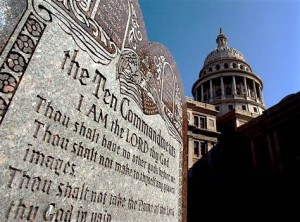Tags
C.S.Lewis, Christ, Christianity, Conservatism, Everlasting, Experience, Fellowship of the Minds, Freedom, Genealogy, God, Jesus Christ, Lessons, Liberty, Life, Posterity, Self-Preservation, Teaching, United States, Wisdom
Share it
Kenneth Walker, author of Meaning and Purpose wrote in 1950, “Freud’s investigation of the contents of the submerged parts of the mind showed that these were of a very primitive nature .. According to him, we are whited sepulchers and are only outwardly decent and cultured. We all carry about within us, locked in some dark cellar of the mind, not a comparatively respectable skeleton, but a full-bodied and lascivious savage. In spite of our efforts to isolate this unwelcome guest in his cellar, he rules our thoughts and actions”.
“Jung, a Christian, thought much the same but ascribed to the words of Jesus of Nazareth, “Out of the heart of men proceed evil thoughts, adulteries, fornications, murders, thefts, covetousness, wickedness, deceit, lasciviousness, an evil eye, blasphemy, pride, foolishness. All these evil things come from within.” ~ Mark 7: 21-23″
“A very commonly misunderstood yet central aspect of the Christian revelation in the spiritual domain, Jesus of Nazareth, was NOT a moral or ethical teacher in the historical sense. Unlike ethicists and moral philosophies found in Plato, Aristotle, Epicurean-ism, Stoicism (all pre-dating Christian writings) or say, Hobbs, Spinoza, Joseph Butler, Kant, Bentham or Mill, etc. from a more recent era, the teachings and claims of Jesus in the New Testament gospel derive their character from his role as the Messiah. He was not an ethics philosopher nor a moral teacher. There is nothing in the gospel that indicates Jesus was in the least preoccupied with his ethical condition; he was perfect in his morality”.
**********
C. S. Lewis wrote about this same issue in Mere Christianity, 1960: “I am trying here to prevent anyone saying the really foolish thing that people often say about Him: ‘I’m ready to accept Jesus as a great moral teacher, but I don’t accept His claim to be God.’ That is the one thing we must not say. A man who was merely a man and said the sort of things Jesus said would not be a great moral teacher. He would either be a lunatic – on the level with the man who says he is a poached egg – or else he would be the Devil of Hell. You must make your choice. Either this man was, and is, the Son of God, or else a madman or something worse. You can shut Him up for a fool, you can spit at Him and kill Him as a demon; or you can fall at His feet and call Him Lord and God. But let us not come with any patronizing nonsense about His being a great human teacher. He has not left that open to us. He did not intend to”.
There is no precise formula to being a Christian other than living as a Christian, and living as a Christian doesn’t mean saving the world, doesn’t mean we have to bring people into our house (or country) to the detriment of our own well-being, but in naturally-occurring acts as to how we treat each other on a daily basis, both Christian and non-Christian.
We can forgive someone while the system still executes them for heinous crimes; forgiving isn’t the same as holding blameless. You can kill someone that threatens yourself, your family, or friends, and walk away with a clear conscience. As a nation we can kill others that threaten populations we find in need, and we’d better start paying attention to the Christians in the Middle East and stop worrying about muslims.
Christians can hate the sin but not the sinner, and Christians need not be passive in accepting the perversions of others – to do so means we’ve given up too much of our self too easily. Christ urged us to “love thy neighbour as thyself”, yet by accepting abortion, homosexuality, and the potpourri of morally-unacceptable behavior foisted upon us by government these days, it causes us to no longer love ourselves, and once we’ve lost respect for ourselves we inevitably lose respect for others.
Being Christian doesn’t mean laying back and letting others walk all over us – quite the opposite – we need to stay strong to remain committed to the Word of Christ.
**********
Jeremy Egerer has a very interesting piece on the topic in American Thinker, from which I have culled the following excerpts:
Spend any significant time reading the Bible, and you’re sure to have encountered a certain saying that not many wise were called to be Christians.
We have reason to believe that Paul was being serious when he said it. Not only because the majority of the Christian epistles were written to people who apparently misunderstood everything about Christianity (I refer the reader to the Book of 1 Corinthians), but because even after two thousand years of reading the epistles, many Christians have difficulty understanding that Christianity and killing children are mutually incompatible. Heresy was a problem from the beginning of the church, and it has always been a problem, quite possibly because Christians (despite the alleged indwelling of the Holy Spirit) are still very bad at understanding what words mean – which is probably because Christians are people.
If the letters from Christ’s own personal disciples haven’t been ignored, they are likely to have been misunderstood. Philosophy hasn’t always helped, because theology means thinking out of your senses. The “unification” of the church resulted in schism, the unification of church and state resulted in murder, and the liberalization of religion during the Enlightenment resulted in a thousand cults. And now that we’ve tried everything we could have possibly imagined to straighten out an embattled and struggling church, we find the Daily Kos trying to fix things by saying you cannot be a Republican and a Christian.
In the Democrats’ defense, the excommunication of other political parties has been an uncharitable tactic of nearly every political faction. The Republicans say you can’t be Christian and support the party that supports gay marriage; the Democrats say you can’t be a Christian and support the party that wants to give less to the poor. The Nazis did it by saying they were against the Jews (just like Jesus wasn’t); and the Communists did it by saying the early church lived in communes (which happened to be voluntary). The hippies claimed that Jesus was a hippie because He was interested in a love none of them could safely define.
The libertarians claimed that Jesus was a libertarian because He gives people the choice to commit any sin and go to hell (!). The feminists are perhaps the most technically correct, in that both Jesus and they spent a lot of time with whores, and the socialists claim that Jesus was a socialist, probably because He said poor people were better at getting into Heaven, and socialists are very good at making people poor. In general, everyone’s so incredibly convinced that his own ideas are divinely inspired that he’s convinced that everyone else’s are essentially diabolical. And they’re almost all right about the second part, because they’re almost all wrong about the first.
Whether you’re a conservative or a leftist, whether you’re against land reform or gay marriage or the death penalty, whether you want everyone to worship according to his conscience or survive working on a Sabbath, you’ll find something so objectionable that you’ll find yourself willing to believe that only a non-Christian could endorse it. In other words, you’ll find yourself almost saying you cannot be a Christian and be a Christian. In this respect of theo-political condemnations, the Democrats may not be alone – but they are in every respect exceptional. We may give many Democrats a pass in their disowning of Thomas Jefferson, not only because Thomas Jefferson was never a statist or a redistributionist or a gay rights activist or an abortionist or even a Democrat, but because Thomas Jefferson isn’t even the man they claim to be their Lord and Savior.
Not everyone knows he tried to abolish slavery in the United States, because Thomas Jefferson’s autobiography is not in the Bible. We might even shake our heads and laugh at the Democrats for trying to sever all ties with the man they never had any ties with – or apparently knowledge of. But when it comes to the Man they claim to be the Founder of their religion, their ignorance of His position can be regarded only as deeply irreligious. Jefferson was thrown under the bus because (against his political principles) he owned slaves. Jesus is endorsed because His own followers are completely unaware of His political principles.
It might be naive to expect that a person’s religion will never influence his politics, because religions influence ideas, and ideas influence politics. But if anyone’s going to claim the God of the Bible for his own political party, he ought to be humble enough to recognize that God was God before Abraham, who was before the Law of Moses – and that if He can create His own political system and then throw it away, then maybe He’s bigger than any political system we can create for ourselves.
We may draw principles from His political system. We may compare Moses with Lycurgus and Burke and Locke and Marx and Jefferson, and we may (perhaps most wisely) compare the results of their philosophies to see which works best.
But if we think that we in our ignorance can ever create a political system more Godly than the one the God of the Bible made for Himself, and excommunicate the people who refuse to subscribe to it, we ought at the very least to examine ourselves seriously, and wonder whether we actually worship the God of the Bible – or whether we in our own lack of Christian humility secretly worship ourselves.
**********
The complete Egerer piece right here…
Jeremy Egerer is the editor of the troublesome philosophical website known as Letters to Hannah, and he welcomes followers on Twitter and Facebook.
**********
Soli Deo Gloria!







 Link To DennisGHurst.com
Link To DennisGHurst.com



2 Comments
09/13/2015 at 11:32 AM
I was led to your site because of your link to mine, and was surprised to find you speaking about Jung and Freud and the fallen state of man — which I had been thinking about all this morning. I actually just put Jung’s “Modern Man in Search of a Soul” back on the shelf this morning after reading a couple of chapters. Not the best book I’ve ever read, but what timing!
09/13/2015 at 1:25 PM
… yes Jeremy, I picked your piece up from American Thinker a few days ago, and archived it for today’s blog .. I greatly admire your Letters to Hannah and it would appear that Gerard Venderleun of American Digest approves also, since that’s where I originally found you … I hope you don’t mind me quoting you and pulling in excerpts from your pieces from time to time .. Thanks for the pingback and look forward to future exchanges … Yours, DGH